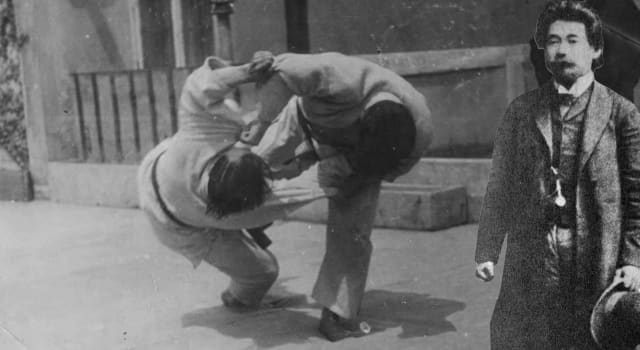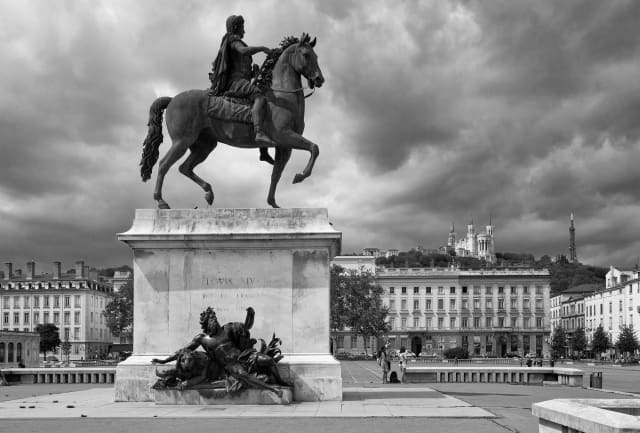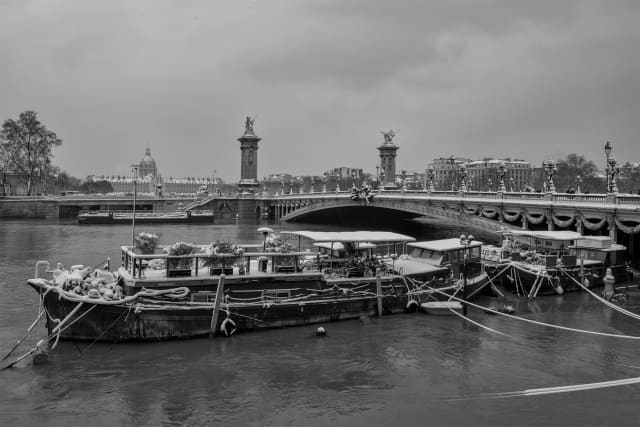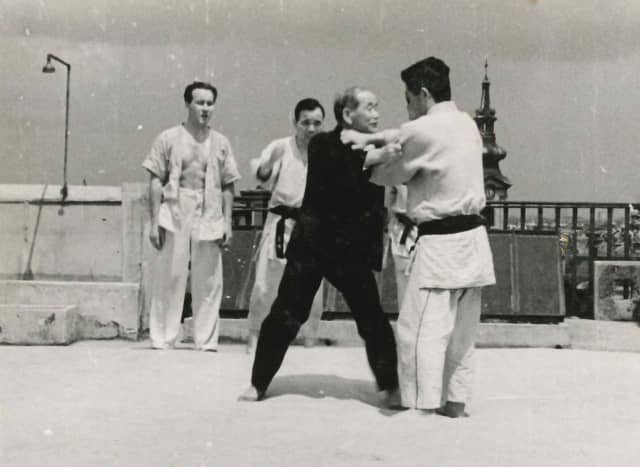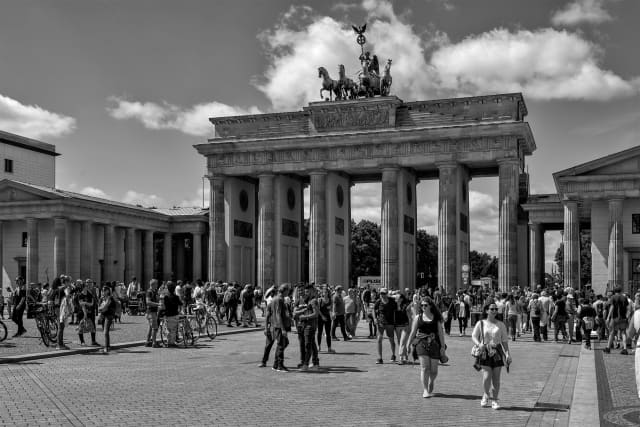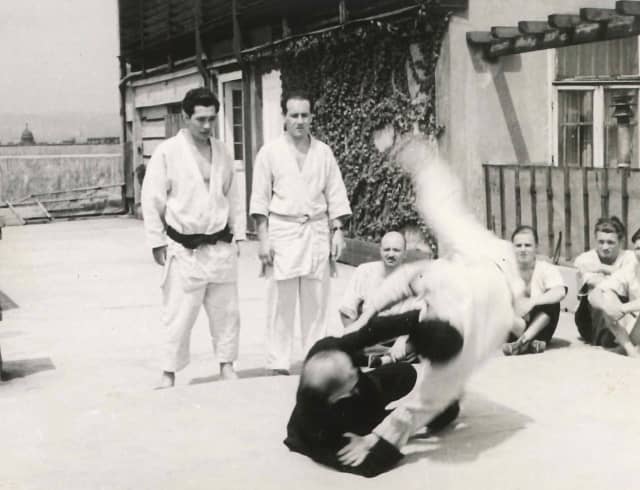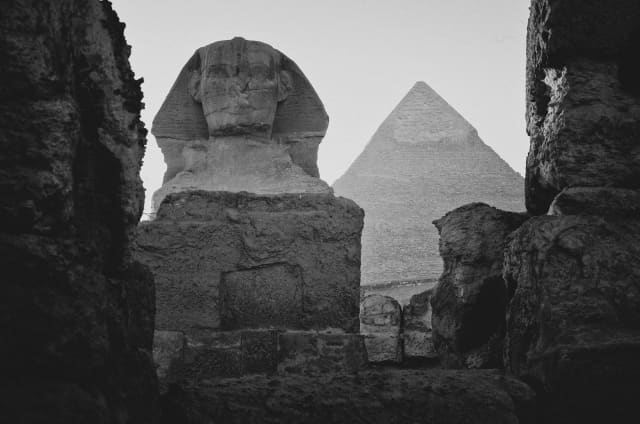On his way to Paris, he stopped in Lyon, where he visited the son of a former student of Gakushūin, who was studying at a college in the city. The institution became Kano's first case study on his journey of learning about the Western-style education system. He took the opportunity to visit the Notre Dame de Fourvière church, the magnificence of which marked him for a long time. If Kano was a secular individual whose objective was to transform society through education, he was also aware of the importance of religions, which had a unifying role in society, when their power was not misused.
He said in this regard, "As I had known for a long time the immense force of the teaching, I understood that the fact of conforming to a way which exceeds mankind, whether it is that of the teaching or that of the religion, bears profound witness to the idea that it is the most important task in life." (source: Jigoro Kano, Father of Judo - Michel Mazac - Budo Editions, 2014). Kano therefore made the choice to teach but he was interested all his life in religion as a tool for the transformation of people.
He began to immerse himself in French culture. Arriving in the French capital, he settled in the Latin Quarter with Tsuzuki Keifuku, who graduated from university the same year as him. In contact with the population, he realised that the rudiments of French he had learned at university did not help much with making himself understood. He therefore undertook to perfect the language of Molière, while visiting schools almost daily for two months, in order to better understand the local education system.
Received at the Ministry of National Education, he discussed education and teaching with French experts, including the director of general education, Mr Buisson, as well as with teachers from the University of Paris. Then he embarked on a true tour of Europe, visiting Belgium, Germany from north to south, Switzerland, Austria, Russia, Sweden, Denmark, the Netherlands and Great Britain successively.
In Germany he went to Berlin as well as to Cologne, with the monumental cathedral that once again marked him greatly. Present in Berlin at the end of 1889, he rented a small room near the station and once again found that the little German he knew did not help him much. After perfecting his French, he embarked on learning German. Little by little Kano became a polyglot. Besides the Japanese and English he already knew, he added French and German.
Kano reproduced in Germany what he had already done in France. Relying on a network of Japanese people living in the country, he introduced himself to the education system and began to visit schools as much as he could, while taking a few courses at the university himself.
Returning to Paris after several months on the road, he then arrived in Marseilles in December 1890 where he travelling via Port Said, Alexandria and Cairo, before reaching Japan. He was very impressed by the pyramids.
These months of discovery left a deep mark on Kano. If the cultural differences between Japan and the countries visited were sometimes underwhelming, he focused on what could be useful to him in his mission of education. According to him, Japan was lagging behind and the only way to catch up was for his country to industrialise. Without this, communication between east and west would become hazardous.
Throughout this initial journey, Kano was struck by the level of knowledge of Western intellectuals, even if he was also sometimes disappointed by their lack of adaptability, perspective and practical application. Curious about religion as we said, he was surprised to see the gap between weight of belief and their real impact on society. Certainly the churches seemed powerful but at the end of the 19th century, they were clearly losing their leadership in the West. He found that behind the splendor displayed by European countries, there was, in his view, a desire to live modestly and humbly.
He observed for instance that companies were created to collect waste because, in some homes he had frequented, nothing was thrown away. The profits made by these companies had made it possible to create centres of education. "Thus I was able to see that by using this waste, we had ended up being attentive to the usefulness of each thing. The best use of energy partially draws its origin from such observations" (source: Jigoro Kano, Father of Judo - Michel Mazac - Budo Editions, 2014).
Kano was therefore an enlightened observer and a wise man, curious of the European society of the time. His conclusions after this first long journey were clear: the Japanese education system needed to be modernised by drawing inspiration from Western methods, without forgetting the traditions that formed the basis of Japanese culture.
Jigoro Kano had a dream, that of making Japan a leading nation. According to him, this should happen through teaching and education, the only valid tools for a harmonious openness to the world. This first trip far beyond the Japanese horizon did not change Kano, who remained faithful to his philosophical and moral principles, but on the contrary reinforced his desire to have a positive influence on all of society, not just Japanese, but globally. One of the tools he used throughout his life was judo. He became the first ambassador of his creation and promoted it tirelessly until his last days.
As the years passed, Kano never stopped travelling, spending months away from home and away from loved ones. It was during one of his trips abroad that he died. We will come back to this later.

